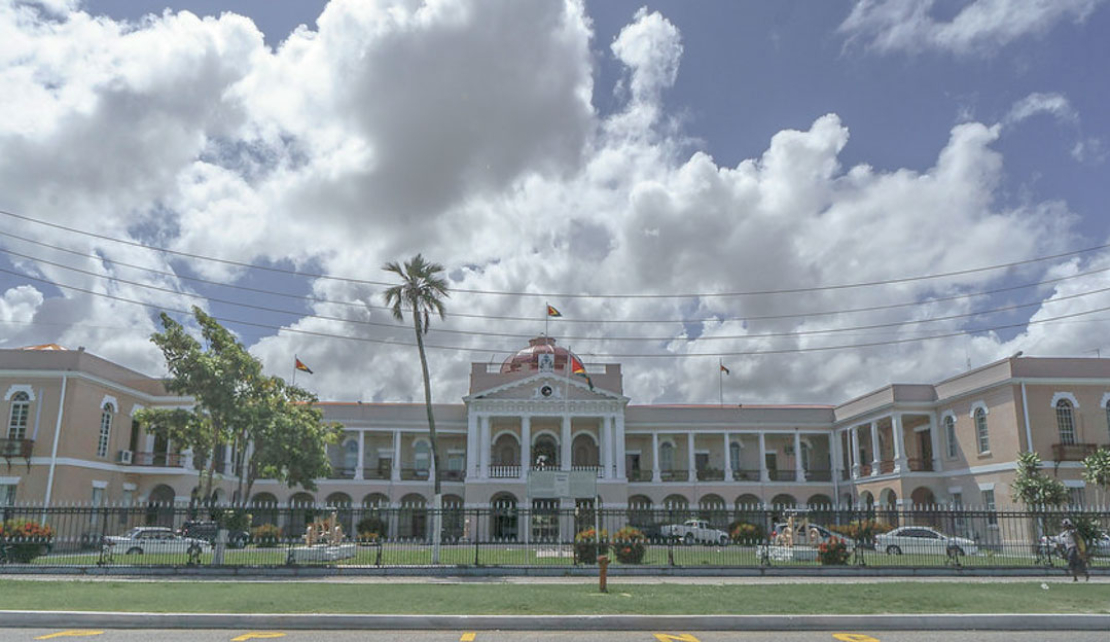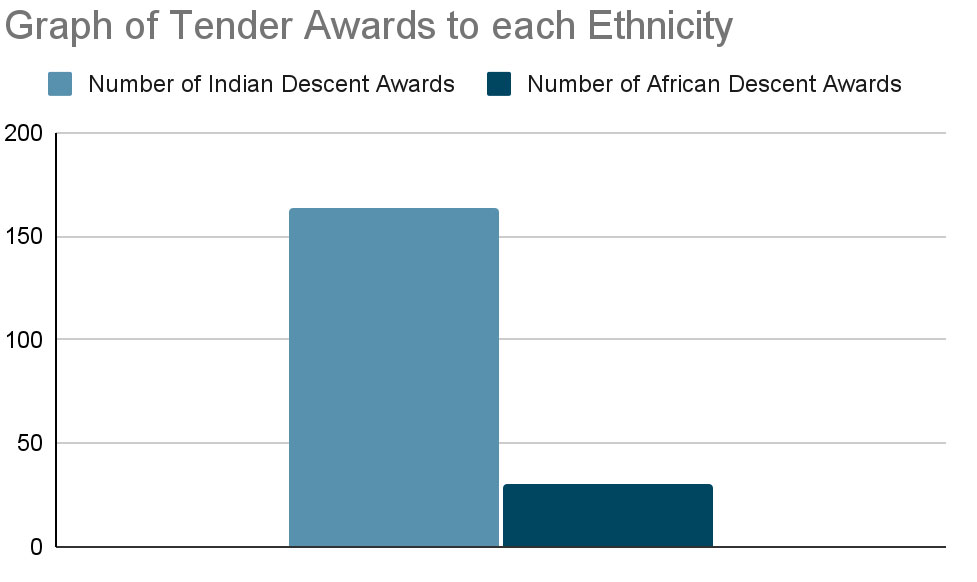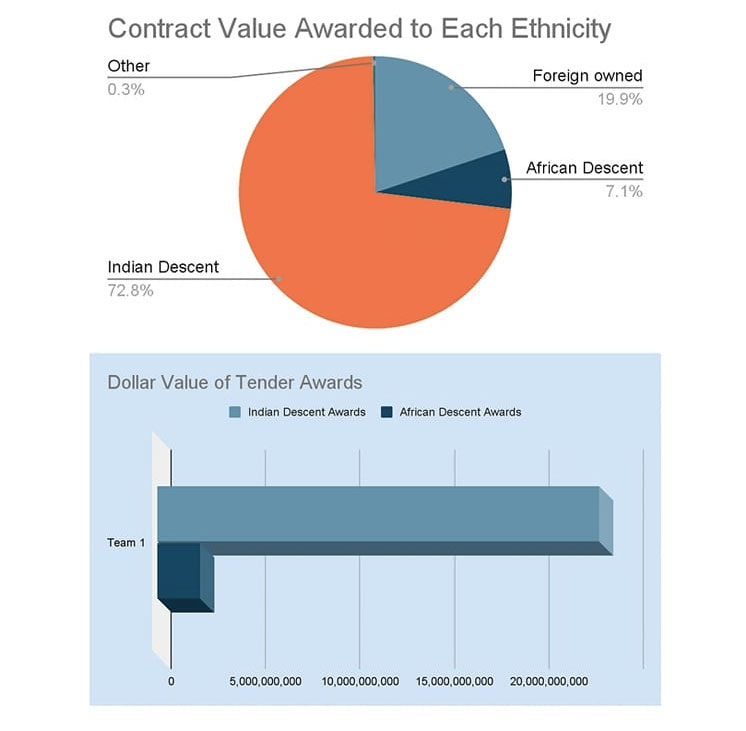GUYANA | Afro-Guyanese an afterthought in Ali Gov't contract awards -Data shows

GEORGETOWN, Guyana, December 3, 2022 - Despite efforts by Guyana’s President Irfaan Ali to counter claims that his administration is racist and has been uneven in its allocation of resources, a detailed ethnic report of contracts awarded by the National Procurement and Tender Administration (NPTA) seems to be telling a different story.
In addition to the NPTA report, there is also an analysis by Attorney-at-law, C.A. Nigel Hughes entitled "Economy and Justice in Guyana," which looks at various agencies of governnment from Education to Health, Road construction, Housing as well as Oil and Gas, which tells the story of grave distortion in the allocation of the nation's resources in its allocation for development.
Mr. Hughes says "there is urgent and immediate need for redress including the cessation of future awards until a comprehensive plan to arrest this disproportionate and unfair allocation of state resources."
On then other hand, according to the NPTA report, “there is clear evidence of ethnic discrimination in the award of tenders in Guyana. The National Procurement and Tender Administration (NPTA) lists on its website Guyana’s annual tender awards and an analysis of these awards has provided a clear pattern of discrimination.”
“Companies owned or operated by Guyanese of Indian descent are awarded contracts at a rate far exceeding their representation in the broader demographic statistics of the country. Additionally, this pattern is even more evident when the dollar value of the contracts is considered.”
 The National Procurement and Tender Administration’s website listed 288 awards for the year 2022, where ownership or management of tender awardees could be determined, were examined. The ethnicity of owners or managers of businesses for these awards was first determined, as well as whether they are local or foreign businesses, and then an analysis was conducted.
The National Procurement and Tender Administration’s website listed 288 awards for the year 2022, where ownership or management of tender awardees could be determined, were examined. The ethnicity of owners or managers of businesses for these awards was first determined, as well as whether they are local or foreign businesses, and then an analysis was conducted.
The methods include:
1. Business names that were of South Asian origin were identified.
2. Where business names were generic in nature, news articles where owners and managers were mentioned were identified,
3. Photographic evidence from contract signing ceremonies where businesses were identified. Businesses owned by Guyanese of African descent, or other ethnicities, were similarly identified. Businesses that are internationally owned and operated were also noted.
The Key points of the analysis are:
1. 56.9% of contracts awarded were to businesses owned or operated by Guyanese of Indian descent
2. 72.8% of the total dollar value of awards went to businesses owned or operated by Guyanese of Indian descent
3. 10.4% of contracts awarded were to businesses owned or operated by Guyanese of African descent
4. 7.1% of the total dollar value of awards went to businesses owned or operated by Guyanese of African descent
5. Contracts were awarded 5 times as often to contractors of Indian descent as those of African Descent.
6. The dollar value of contracts awarded to Guyanese firms with Indian descent ownership or management was 10 times greater than that awarded to firms owned or managed by Guyanese of African descent.
7. According to the 2012 census, Guyanese of Indian descent represent 39.8% of the population and Guyanese of African descent 29.3%.
8. It is interesting to note that the value of tenders awarded to foreign companies exceeds that rewarded to Guyanese of African descent.

Attorney at Law, Nigel Hughes, also compiled a more telling set of data which has confirmed the information put out by the National Procurement and Tender Administration (NPTA).
According to Hughes: "the recent revelations disclosed by the analysis have confirmed what has long been suspected by several persons."
He pointed out that "Now that the data has confirmed the huge disproportion in the award of contracts between the various ethnic communities in Guyana there is urgent and immediate need for redress including the cessation of future awards until a comprehensive plan to arrest this disproportionate and unfair allocation of state resources."
The following is the analysis done by Mr. Hughes, and is entitled, Economy and Justice in Guyana.
It is laid out and presented in a power-point format in order that the information can be more easily read and understood.
